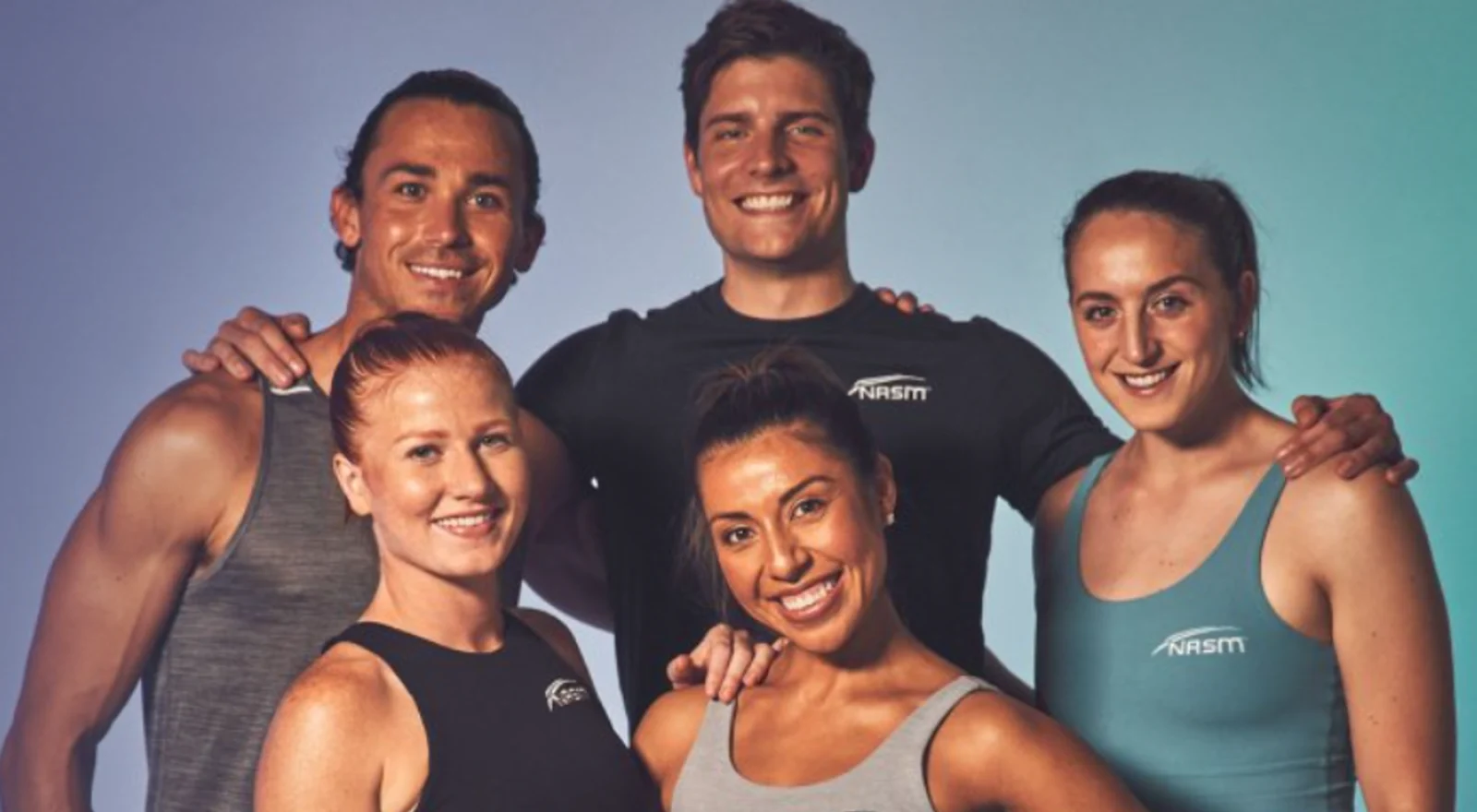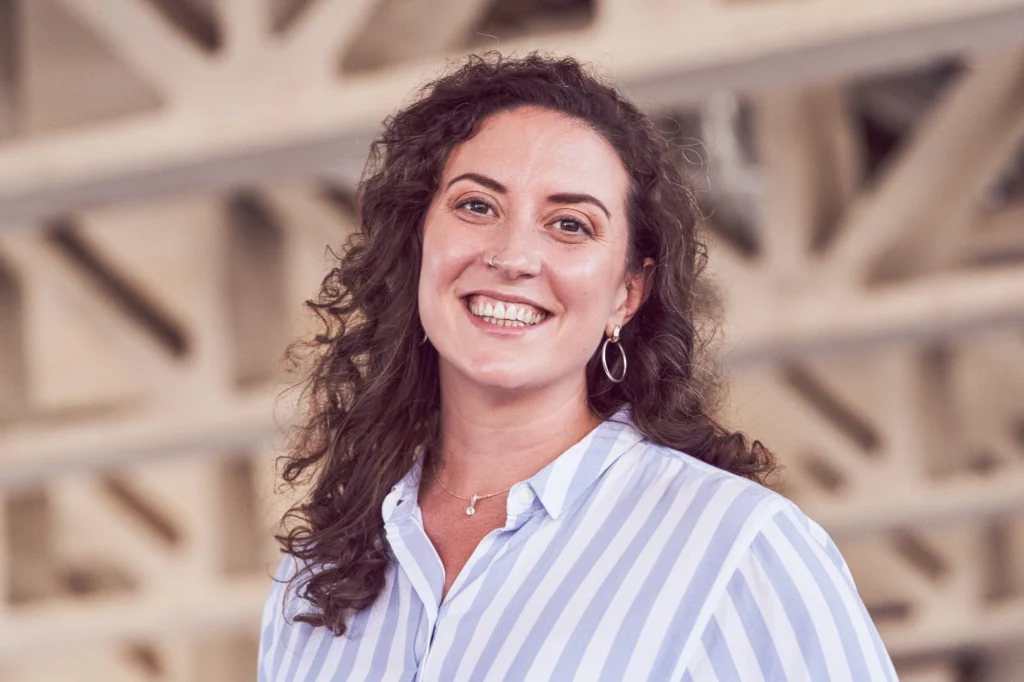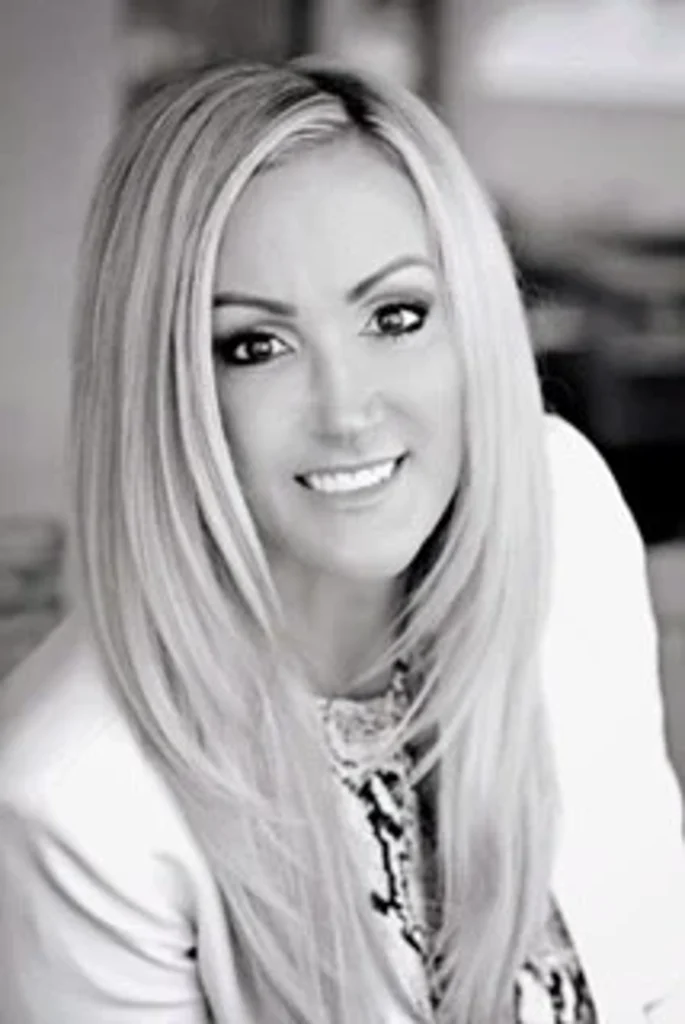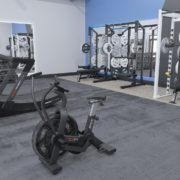NASM Launches New Courses as Fitness & Wellness Industry Grows

One of NASM’s latest educational offerings gives students the opportunity to refine their techniques and gain instant feedback from a mentor
With the job outlook for fitness and wellness professionals projected to grow 14% by 2032, the National Academy of Sports Medicine (NASM) is launching two new courses that build upon its Certified Wellness Coach (CWC) program: Wellness Coaching Simulation and Wellness Coaching Business Blueprint.
Kristin Carrico, NASM’s chief commercial officer, tells Athletech News that the new courses, offered within the NASM Wellness Pro Bundle, were developed to address gaps within the industry.
“While wellness coaching concepts have been around for a while, we saw the need for comprehensive tools that coaches could directly apply to build their businesses or enhance their current practices,” she said. “This bundle equips wellness coaches with essential skills and strategies, such as emotional intelligence, effective communication, and client engagement techniques, to thrive in a competitive and evolving field.”
Courses to Gain an Edge
Both courses tackle two different (yet important) areas of need:
- NASM’s Wellness Coaching Business Blueprint provides coaches with tools to grow their businesses and offers resources and guidance on branding, marketing strategies, retaining clients and day-to-day operations.
- The Wellness Coaching Simulation allows coaches to fine-tune their techniques in a virtual environment and receive real-time feedback from a virtual mentor.

“Research indicates that experiential learning can improve skill retention, which is why this simulation is so effective,” Carrico said of the simulation course. “Coaches can practice dealing with difficult client situations, refining their motivational interviewing techniques, and developing personalized wellness plans, ultimately enhancing client outcomes and fostering professional growth.”
NASM-certified wellness coach Darlene Marshall likens the Wellness Coaching Simulation to a sandbox — for coaches.
“When you’re just learning coaching skills like motivational interviewing or reflective listening, practicing those skills can feel clunky,” Marshall pointed out. “It’s such a different way of thinking and speaking than how most people are raised, so practice is essential. You don’t want your first time trying these skills out to be with a paying client.”
The Wellness Coaching Simulation can also help address common issues such as imposter syndrome or difficulty finding “practice clients.”
“Mentors are expensive, and even that can feel intimidating,” Marshall added. “All of that makes the wellness coaching simulation so helpful. Even better, coaching skills need to be refreshed to stay sharp. They’re perishable that way. Even as an experienced coach, I can keep coming back to the simulation to practice my skills. Good coaches want to keep growing, and the simulator gives them a way to get instant feedback on how they can be even better.”
Wellness Integration
With their fingers on the pulse of the industry, both Carrico and Marshall can see the transformational shift towards wellness and holistic health, with fitness professionals eagerly embracing wellness coaching as an expansion of their services.
“By integrating wellness into their practice, fitness coaches can address broader client needs such as sleep, stress management, and nutrition, leading to deeper relationships and better overall results,” Carrico said, adding that she’s seeing professionals from the healthcare, psychology, nutrition fields and fire and police forces also integrate wellness training for their new recruits.

Overall, both Carrico and Marshall note that the need for wellness coaches is greater than ever, especially in the modern age.
“Our digital world is leaving a lot of people tired and overwhelmed,” Marshall said. “They’re being fed too many meaningless things by their social media feeds and unsure how to put any of it into practice. A great wellness coach is someone who can cut through that static and make a sustainable change. The better a coach can target their content, information, and practice to that person or group’s specific needs, the more they’ll stand out, the better their business will be, and the more impactful the change they’ll help people make.”



